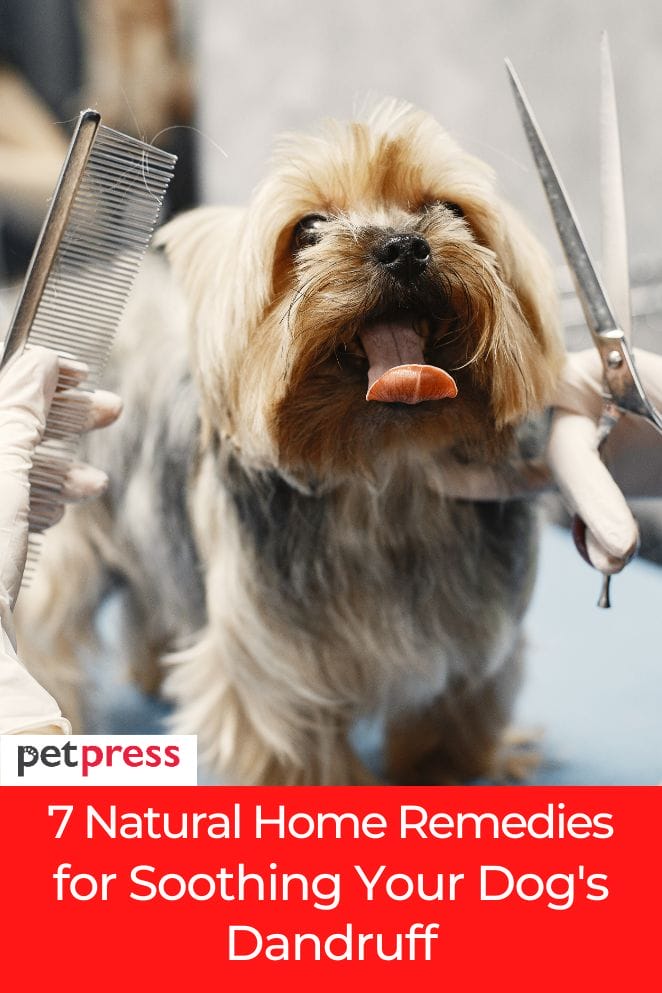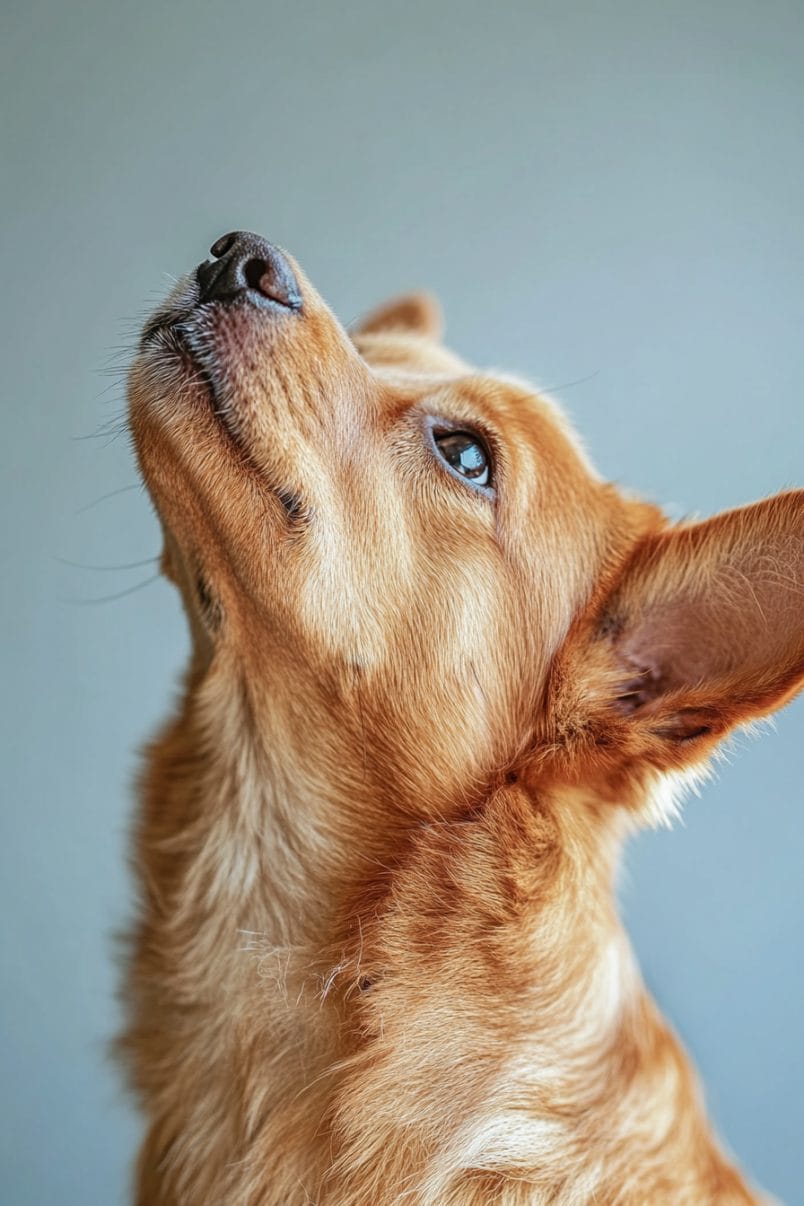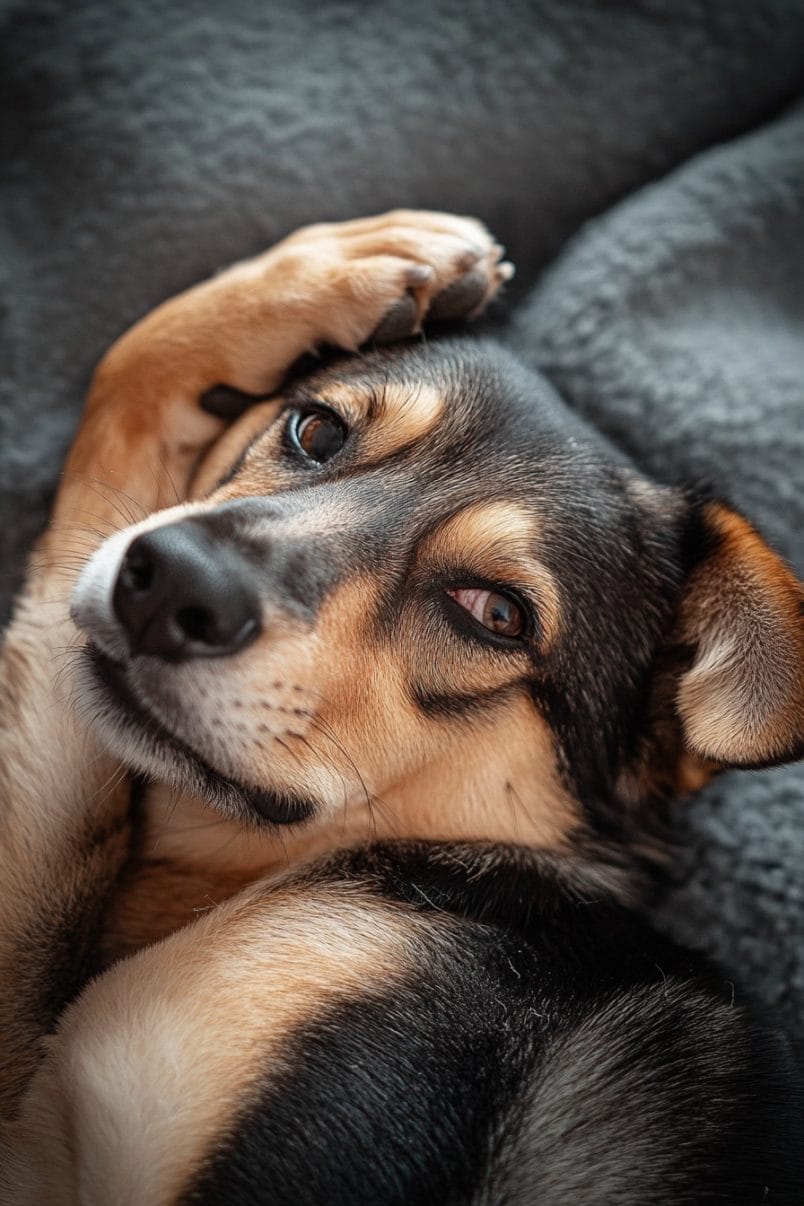
If you’ve ever noticed white flakes on your dog’s coat, you’re not alone.
Dog dandruff is a common issue that can affect any breed or age.
Just like humans, dogs can experience dry, flaky skin, which can lead to itching and discomfort.
Thankfully, there are several home remedies that can help alleviate your dog’s dandruff and keep their skin healthy and hydrated.
In this post, we’ll explore the common causes of dog dandruff and share some effective home remedies to help your furry friend feel their best.
Common Causes of Dog Dandruff
Before we dive into remedies, it’s important to understand what causes dandruff in dogs.
Some common causes include:
Dry skin
Dry skin is one of the leading causes of dandruff in dogs.
This can happen for several reasons:
- Cold weather: During the colder months, the air tends to be dry, which can strip moisture from your dog’s skin.
- Low humidity: Even if it’s not cold, a dry indoor environment can lead to your dog’s skin becoming dry and flaky.
- Frequent bathing with harsh shampoos: If you’re bathing your dog too often, especially with shampoos that aren’t designed for dogs.
Poor Diet
A dog’s diet plays a crucial role in their overall health, including the health of their skin.
If your dog’s diet is lacking essential nutrients, particularly fatty acids, vitamins, and minerals, their skin can become dry and flaky:
- Essential fatty acids: Omega-3 and Omega-6 fatty acids are vital for healthy skin. A deficiency in these can lead to dry skin, which in turn causes dandruff.
- Vitamins and minerals: A balanced diet rich in the necessary vitamins and minerals supports healthy skin.
Allergies
Dogs can suffer from allergies just like humans, and these allergies can manifest in skin issues, including dandruff:
- Environmental allergens: Common allergens like pollen, dust mites, or mold can trigger allergic reactions in dogs, causing their skin to become irritated and flaky.
- Food allergies: Some dogs may have food allergies that cause their skin to become inflamed, leading to dandruff.
Parasites
Certain parasites, particularly mites, can cause a condition known as “cheyletiellosis,” often referred to as “walking dandruff.” These tiny parasites can irritate your dog’s skin, leading to dandruff:
- Mites: Mites are tiny creatures that can infest your dog’s skin and cause significant irritation. They often lead to flaky skin, which is easily mistaken for regular dandruff.
Skin infections
Bacterial or fungal infections on your dog’s skin can also lead to dandruff:
- Bacterial Infections: These can cause the skin to become inflamed, irritated, and flaky.
- Fungal Infections: Fungal conditions, such as yeast infections, can also result in flaky skin.
Underlying health issues
Sometimes, dandruff can be a sign of a more serious underlying health issue.
Conditions such as:
- Hypothyroidism: This is when your dog’s thyroid gland doesn’t produce enough hormones, leading to a range of symptoms, including dry, flaky skin.
- Cushing’s disease: This condition involves an overproduction of cortisol, which can affect your dog’s skin health, leading to dandruff among other symptoms.

Home Remedies for Dog Dandruff
Now that we know the causes, let’s look at some effective home remedies to help combat dog dandruff.
These remedies focus on natural and gentle solutions to improve your dog’s skin health.
Regular grooming
One of the easiest ways to control dandruff is through regular grooming.
Brushing your dog’s coat helps remove dead skin cells, spreads natural oils evenly across the skin, and prevents the hair from matting, which can make dandruff worse.
Try to brush your dog at least once a week, especially if they have a longer coat.
A soft-bristled brush works best, as it’s gentle on the skin and helps stimulate the natural oils that keep your dog’s skin healthy.
Proper bathing techniques
Bathing your dog regularly is important, but it’s crucial not to overdo it.
Bathing too often can strip your dog’s skin of its natural oils, leading to dryness and more dandruff.
Aim to bathe your dog every 4 to 6 weeks, depending on their breed and skin condition.
Use a gentle, moisturizing shampoo specifically designed for dogs, and rinse thoroughly to make sure no residue is left behind.
Avoid using human shampoos, as they aren’t pH-balanced for dogs and can irritate their skin.
Natural moisturizers
Just like humans, dogs can benefit from moisturizing treatments to soothe dry skin.
Natural oils, such as coconut oil or olive oil, can be great for keeping your dog’s skin hydrated.
Simply rub a small amount of oil between your hands and gently massage it into your dog’s coat and skin.
Coconut oil is especially beneficial because it has antibacterial and antifungal properties that can help with dandruff caused by infections.
However, use these oils sparingly to avoid making your dog’s coat too greasy.
Dietary adjustments
A healthy diet is essential for your dog’s overall well-being, including their skin.
Make sure your dog’s diet includes high-quality protein and essential fatty acids, like omega-3 and omega-6, which are vital for maintaining healthy skin and a shiny coat.
Foods rich in omega-3s, such as fish, flaxseed, and chia seeds, can be particularly beneficial.
You might also consider adding fish oil supplements to your dog’s diet, but always consult your vet before making any dietary changes to ensure they’re safe and appropriate for your dog.

Apple cider vinegar treatment
Apple cider vinegar is a well-known home remedy for dandruff in dogs because of its natural antibacterial and antifungal properties.
It helps balance the skin’s pH and can reduce dandruff, especially if it’s caused by infections.
To use apple cider vinegar, mix equal parts of vinegar and water in a spray bottle.
Lightly spray your dog’s coat, avoiding their eyes and any open wounds.
Let it sit for a few minutes before rinsing it off thoroughly with water.
Humidifiers
Dry air, particularly in the winter, can cause your dog’s skin to become dry and flaky.
Using a humidifier in your home can add moisture to the air, helping to prevent your dog’s skin from drying out.
Place the humidifier in the room where your dog spends most of their time to ensure a comfortable environment that supports healthy skin.
CBD and natural remedies
CBD oil is gaining attention for its potential benefits in managing various health issues in pets, including skin conditions like dandruff.
CBD has anti-inflammatory properties that can help reduce itching and inflammation associated with dry, flaky skin.
If you’re considering CBD for your dog, make sure to choose products specifically formulated for pets.
Always consult your veterinarian to determine the correct dosage and to ensure it’s safe for your dog.

When to Consult a Veterinarian
While home remedies can work well for mild dandruff in dogs, there are situations where you should reach out to your veterinarian for guidance.
Here’s a closer look at when it’s important to seek professional help:
Persistent dandruff
If your dog’s dandruff doesn’t improve after trying home remedies for a few weeks, it’s a good idea to consult your vet.
Persistent dandruff could indicate a more serious underlying issue that needs medical attention.
Excessive itching
It’s normal for dogs to scratch occasionally, but if your dog is constantly itching or seems uncomfortable, this could be a sign of a bigger problem.
Excessive scratching can lead to skin infections or worsen the dandruff, so it’s important to have your vet check it out.
Redness or swelling
If you notice any redness, swelling, or inflammation on your dog’s skin, it’s time to see the vet.
These symptoms might indicate an allergic reaction, infection, or another skin condition that needs treatment.
Hair loss
Hair loss is another warning sign that shouldn’t be ignored.
If your dog is losing patches of fur along with having dandruff, it could be due to parasites, infections, or hormonal imbalances that require veterinary care.
Other concerning symptoms
Keep an eye out for any other unusual symptoms, such as changes in appetite, energy levels, or behavior.
Sometimes, dandruff can be a symptom of a more complex health issue, like thyroid problems or Cushing’s disease.
If you notice anything out of the ordinary, it’s best to consult your vet.

Final Thoughts
Dog dandruff is a common issue that can be managed effectively with the right care and attention.
Regular grooming, proper bathing techniques, and natural remedies like coconut oil and apple cider vinegar can help keep your dog’s skin healthy and flake-free.
Remember to pay attention to your dog’s diet and environment, and don’t hesitate to consult your veterinarian if you have concerns about your pet’s skin health.
FAQs
No, human dandruff shampoos are not pH-balanced for dogs and can cause skin irritation. Use a gentle, moisturizing dog shampoo instead.
Bathing your dog every 4-6 weeks is usually sufficient. Over-bathing can strip the skin of natural oils, leading to more dryness and dandruff.
Avoid foods that are low in nutrients or contain fillers and additives. Ensure your dog’s diet is rich in high-quality protein and essential fatty acids for healthy skin.
No, dandruff in dogs is not contagious to humans. However, if the dandruff is caused by parasites like mites, it’s important to take precautions to prevent them from spreading to other pets or humans.
- Does Cat Litter Melt Ice? The Complete Guide to Winter Safety - January 30, 2026
- Happy Tail Dogs: Understanding This Common Canine Condition - January 29, 2026
- How Cold Can Outdoor Cats Handle? Feline Winter Safety - January 27, 2026


GIPHY App Key not set. Please check settings